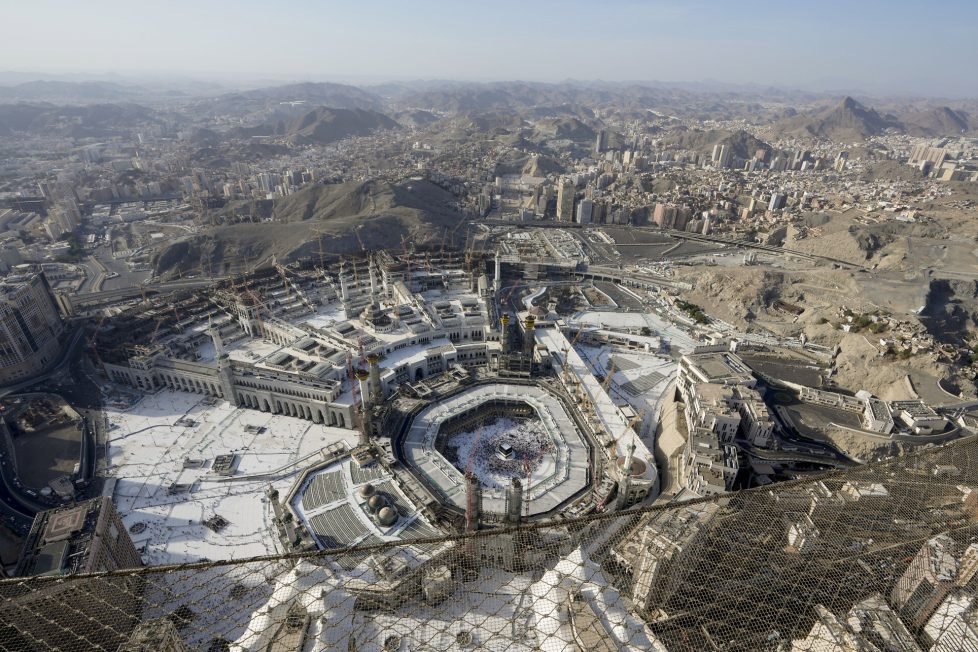How Saudi Arabia Is Changing From Being A Haven For Muslims To A Tourist Destination?(Part-5)


While cultural and entertainment programming does not necessarily reject religion, it has started to place more emphasis on artistic expression from a purely national rather than religious perspective.
Other official measures that subtly (if not explicitly) prioritize non-Islamic aspects of Saudi national identity and history over Islamic ones are related to changing Saudi school curricula as well.
While cultural and entertainment programming does not necessarily reject religion, it has started to place more emphasis on artistic expression from a purely national rather than religious perspective. Abdullah put an emphasis on nationalism, but Salman’s accession to the throne resulted in a more forceful drive in that direction. Boosting Saudi residents’ feelings of loyalty and patriotism is now the focus of new academic publications, conferences, and other occasions aimed at redefining Saudi identity.
In order to advance this brand of nationalist education that “reflects the requirements of national development” and “the twenty-first century,” the Ministry of Education established the Center for Intellectual Awareness in 2017. The Center’s mission is to combat extremism both within the Ministry and in the nation’s schools and universities. To improve “the ideals of citizenship and moderation and standing up to all forms of extremism,” “intellectual awareness units in all education departments and institutions” will be tasked with this starting in March 2021.
Additionally, reports indicate that the Ministry of Education is lessening the emphasis on religion in academic courses and schools.
Despite the modifications made over the last two decades, Islamic education in the kingdom continues to be a source of foreign accusations that Riyadh supports terrorism. Additionally, some religious school texts, academic lectures, and even master’s theses and Ph.D. dissertations continue to uphold religious doctrinal interpretations that oppose the royal family’s favored changes in regard to women’s rights or tolerance of adherents of other faiths. There is a broad tendency for traditional interpretations of the Wahhabi doctrine to continue to take precedence over all others, and many people continue to view criticism of the monarchy as criticism of Islam.
SAUDI ISLAMIC INFLUENCE REBRANDING INTERNATIONALLY
Beyond Saudi Arabia’s boundaries, Wahhabi philosophy mandates the proselytizing obligation of dawa. Following September 11, 2001, terrorist attacks in the United States, there was intense worldwide criticism of the political manipulation of this Wahhabi responsibility to propagate the faith in order to win support and influence for the Saudi government. Before its position was reduced, the Muslim World League stood at the pinnacle of the Saudi governmental apparatus for international proselytism.
In terms of the Ministry of Islamic Affairs’ visibility of its international operations, the Muslim World League presently dominates. The league is in charge of updating the global influence of the kingdom’s influence, while the ministry still appears to be tasked with maintaining this influence.
Although the ministry and the league are separate organizations, they have undoubtedly been connected in the past—sometimes formally, but also because the league’s operations occasionally drew funds from the ministry.
Under the direction of the crown prince, Saudi Arabia is restructuring its participation in the affairs of the umma (the collective global Muslim community), and it is using the league to engage with those whom Wahhabi adherents view as their infidel enemies who follow the practices of the crown prince. For instance, Mohammed bin Salman has already met twice with evangelical Christian delegations, and significant American Jewish organizations have also sent delegations to the country.
The Saudi government has a tendency to use broad, general language when discussing its reform objective. It focuses on modernizing the nation, undoing some restrictions from after 1979, and creating a culture that is wealthier, more developed, educated, and tolerant. The reform initiatives themselves, however, are anything from ambiguous, despite the imprecise terminology. They include a methodical reorganization of the function of religion in Saudi politics and society. Mohammed bin Salman did not start this drive, but since he became crown prince, it has grown more ferocious and daring. Al-wala wa-l-bara, which can be translated as “loyalty and rejection,” is a concept that permeates Wahhabi Islam and places a strong emphasis on encircling the forces of goodness while fending against the forces of evil. The top leadership of the nation now appears to be explicitly and implicitly favoring loyalty over repudiation, at the expense of excluding all other religions besides Wahhabism.
The initiative appears to have as its primary goal, in concrete terms, the reform of the Saudi state. The vast state infrastructure of the nation has long been renowned for being decentralized, filled with fiefdoms and power centers, some of which are under the leadership of prominent (and occasionally rival) members of the royal family, and being loosely managed by an occasionally distant monarch. However, the state is currently changing to become far more receptive to the king’s direction (and occasionally even micromanagement). Or perhaps it is Mohammed bin Salman, the alleged future king, who is currently reining in more established structures and building new ones that are much more directly under the supervision of the palace.
DISCLAIMER: The author is solely responsible for the views expressed in this article. The author carries the responsibility for citing and/or licensing of images utilized within the text.
